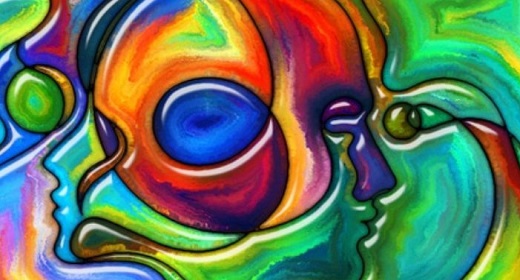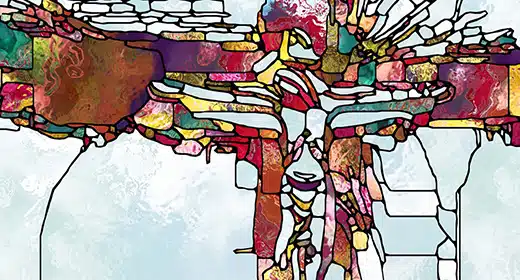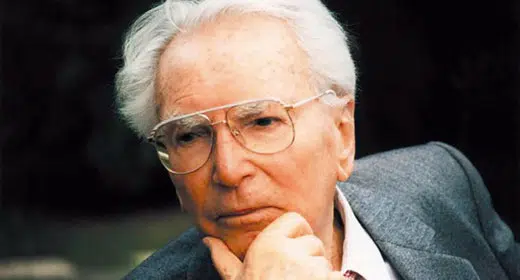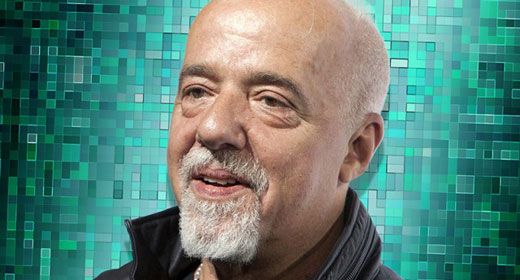by Rabbi Rami Shapiro: Excerpted from The Golden Rule & the Games People Play by Rami Shapiro…

Chances are when asked to point to your body you would turn your finger toward your chest or your head. Very few of us would point to a nearby tree or to the sun or to the earth beneath our feet. Yet these are no less essential parts of our body as any organ within our head or chest.
Consider your lungs, for example. Clearly they are an essential part of you. Without them you would die. Yet lungs alone are insufficient to carry your self or sense of “you.” Your lungs are a mechanism for exchanging gases. They remove carbon dioxide from your body and take oxygen into your body, but your lungs do not produce either gas. Let’s focus on oxygen.
Without oxygen you will die. Getting oxygen into your bloodstream is the work of your lungs. But making the oxygen you so desperately need has nothing to do with your lungs or you at all. At least not the “you” you take yourself to be when you answer the question “Who are you?” by pointing to your chest.
Oxygen is produced through photosynthesis, the process plants, algae, and trees use to transform the energy of sunlight into chemical energy necessary for life. One of the essential by-products of photosynthesis—essential to us humans, at any rate—is oxygen. Oxygen hardly existed on earth prior to the evolution of plants capable of photosynthesis some 3.5 billion years ago, and sufficient amounts of oxygen to support aerobic life didn’t arrive until 2.4 billion years ago. This is called the Great Oxygenation Event and was a boon for aerobic organisms but caused the extinction of many anaerobic ones.
So your lungs need oxygen to function. Since that is so, why limit your understanding of lungs to the lungs alone? Why not speak of the lung-oxygen system? And since oxygen is a by-product of photosynthesis and photosynthesis needs plants, trees, and algae to interact with the light from the sun, your lungs are also dependent on these. Trees, plants, algae, and sunlight are no less a vital organ of “you” than your lungs. Trees, plants, and algae need water and earth to survive, so we will have to add these to “you” as well. A quick survey of the geography of earth’s neighboring planets suggests that the amount of water and sunlight we need must fall within a certain range, a range provided by planet earth’s relation to the sun. The earth is where it is because the other planets are where they are—gravity holding us in the life-producing sweet spot. So the solar system is also “you.”
We could continue our expansion of your body until we would have to say that the entire universe is you, but I will leave that exploration up to you. Suffice it to say that your body is far more than what is contained in the bag of skin you might point to when pointing to “you.”
If this is true of the physical “you,” then can it also be true of the emotional and psychological “you” as well? Are thoughts and feelings something you produce, or are they something to which you relate as they arise in you? You are capable of processing emotion and thought just as you are capable of processing carbon dioxide and oxygen, but you don’t produce thoughts and feelings any more than you produce oxygen or carbon dioxide.
The notion that we don’t produce—and hence control—our own thoughts and feelings may be more difficult to accept than the fact that we don’t produce oxygen. So check it out for yourself. Do you, the conscious and self-conscious “you” you take yourself to be, construct thoughts and feelings, or do you react to them as they arise fully constructed into your field of awareness?
Think of the last time you were moved to tears. This happens to me quite often. YouTube clips of adorable puppies can send tears rolling down my cheeks, but I’m only aware of how the puppy videos affect my feelings after the effect has happened. I don’t choose to be moved or to tear up; I just do.
The same is true of thoughts. As you read the words on this page, you are having emotional and intellectual reactions. You will, most likely, claim these as your own and assume that you react the way you do because you choose to react the way you do. But is this really the case? Are you thinking about the ideas being presented because you want to or because they are arising of their own accord as a by-product of reading?
Of course, if you don’t like what you are experiencing as you read this book, you can choose to put the book aside and stop reading, and when you do, the feelings and thoughts will change, but that only proves my point. The only way to avoid reacting to the input of this book is to avoid having a relationship with the book. Just as your body is a system of interdependent relationships with the world of matter, gas, and energy, so your mind—emotional and intellectual—is a system of interdependent relationships with the worlds of thought and feeling.








































